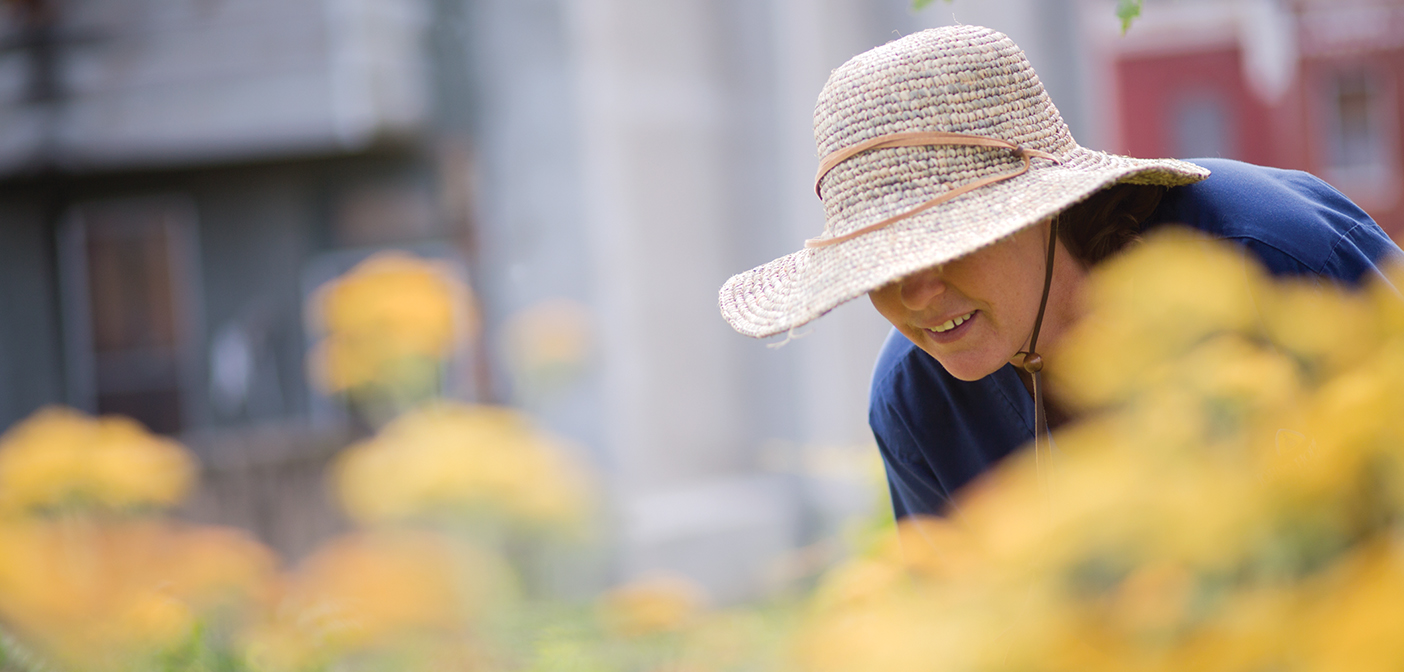On duty and off, psych nurse works to cultivate positivity
Whether on the job or during leisure time, Melinda Walker, RN, has a passion for changing people’s lives.
Walker, with 20 years of psychiatric nursing experience at the Johns Hopkins Hospital, has spent the past 10 years as the electroconvulsive therapy (ECT) nurse coordinator in the Henry Phipps Psychiatric Service clinic, part of the Department of Psychiatry and Behavioral Sciences. Her typical patients suffer from severe depression, and most have not responded to normally prescribed antidepressants. For many, ETC has been shown to have a helpful effect.
Walker works with a group of nurses who, like her, are dual certified as RN’s and for post-anesthesia care. They treat patients waking from general anesthesia and recovering from the procedure.“It’s very intense work,” Walker says. “It’s rewarding because patients get better, but it’s also draining.”
Seeking an off-hours refuge, Walker established a community garden in a struggling part of East Baltimore three years ago. The venture has already begun transforming lives, including her own.
Photos by Chris Hartlove
“My work at the garden is restorative,” Walker says. “A whole different side of my being gets involved. My nursing job is driven by scheduling, so it’s nice to be in the moment with the plants and the environment.”
The project is called Friends of Dayspring Gardens, named for a nonprofit that provides transitional housing and social services for women and children. Walker has helped to create a bright spot in a landscape once dominated by empty lots, a few inhabited houses, and abandoned buildings awaiting condemnation.
“You would hardly ever see butterflies, birds, or pollinator insects in that space, but now I go out and a flock of birds will fly over. We’re trying to grow milkweed because it’s important to monarch butterflies,” she explains. “Now, nature wins. It wants to come out and make a beautiful space for everybody. We’re trying to create an oasis, and it’s a positive thing for me.”“Now, nature wins. It wants to come out and make a beautiful space for everybody.”
— Melinda Walker, RNIt’s a place where anyone can get involved (indeed, Hopkins Hospital employees have come out to volunteer). Women from Dayspring regularly water the garden. Others give their time to build raised beds where vegetables and native plants thrive orwrite grant applications for funding to cover the cost of infrastructure. All are welcome to share at harvest time because one of the garden’s missions is promoting good nutrition.“The garden is changing the story of the neighborhood,” Walker says. “A lot of bad things happened there. Talking to the kids, the story of their life is only bad things—people getting shot or getting taken to jail, or their mom is getting treated for opium addiction.”
“But the garden is a place for planting watermelon, listening to a jazz band that came to play, face painting, spinach harvesting. It changes their life story. It instills hope that life can take a different direction.”Melinda Walker has helped to create a bright spot in a landscape once dominated by empty lots, a few inhabited houses, and abandoned buildings awaiting condemnation.
